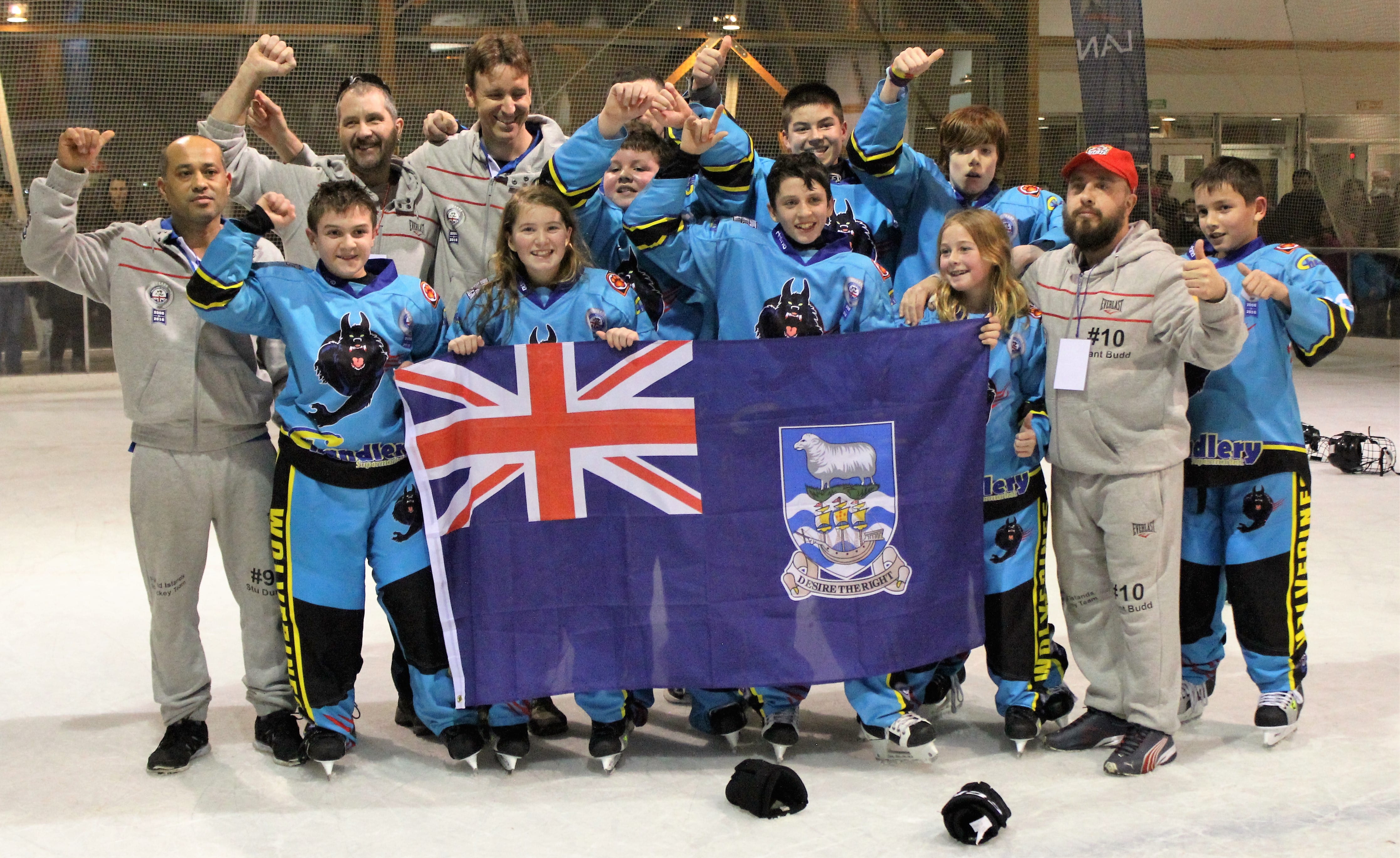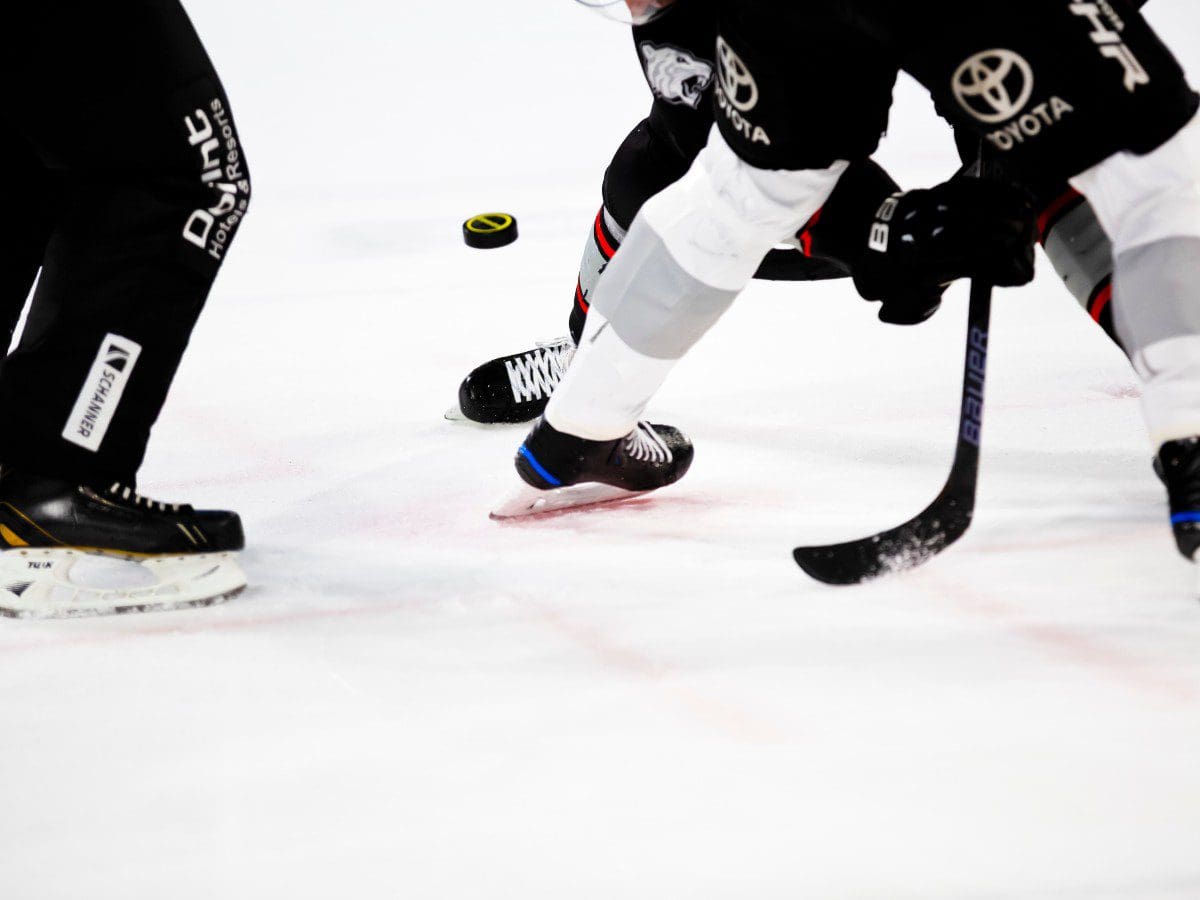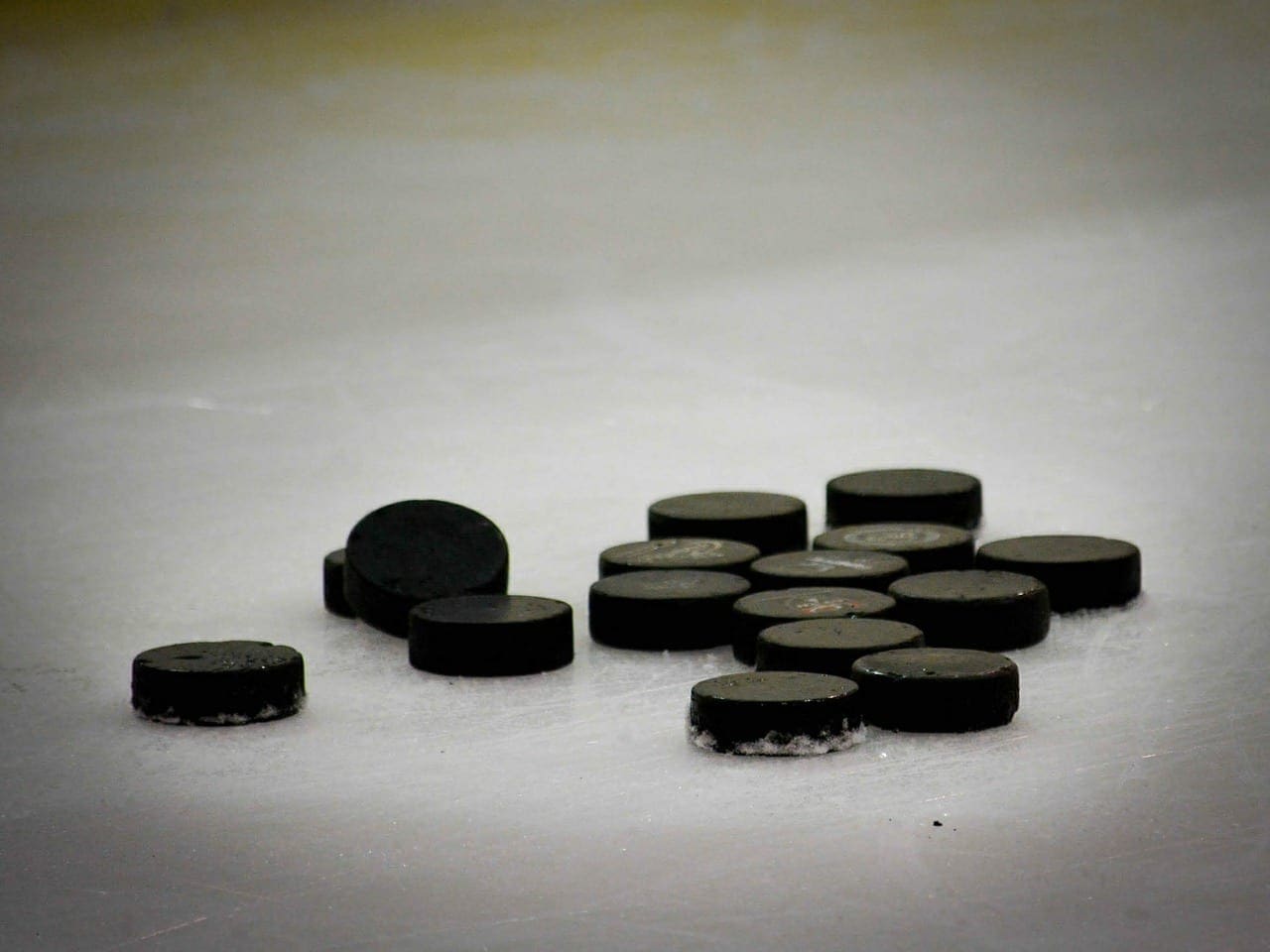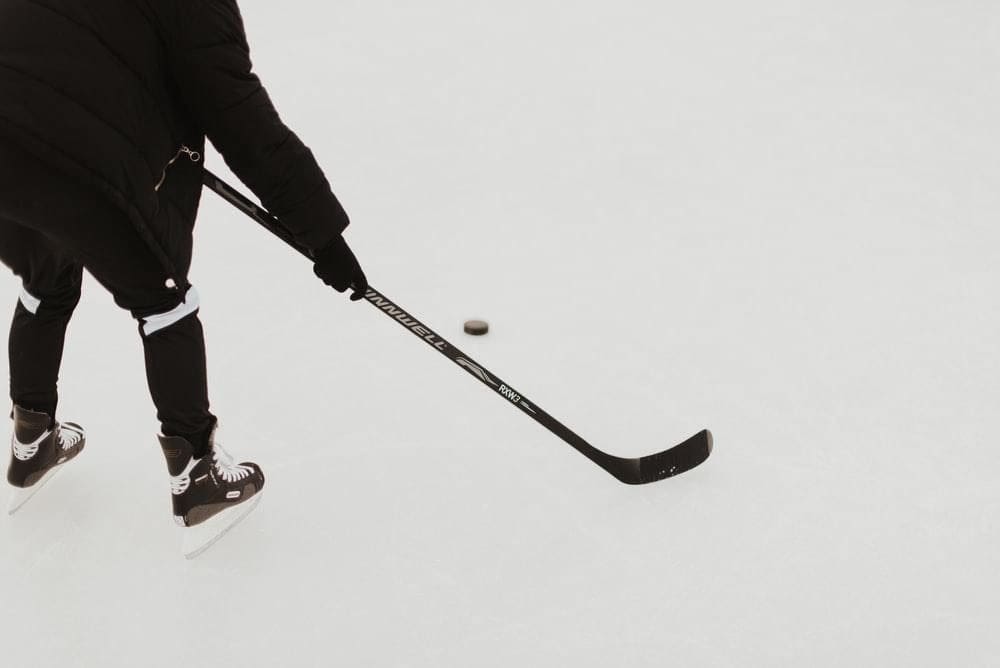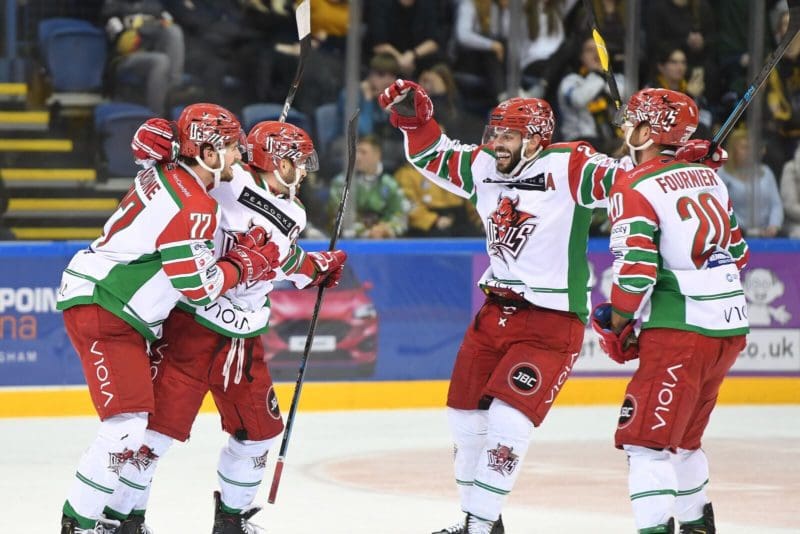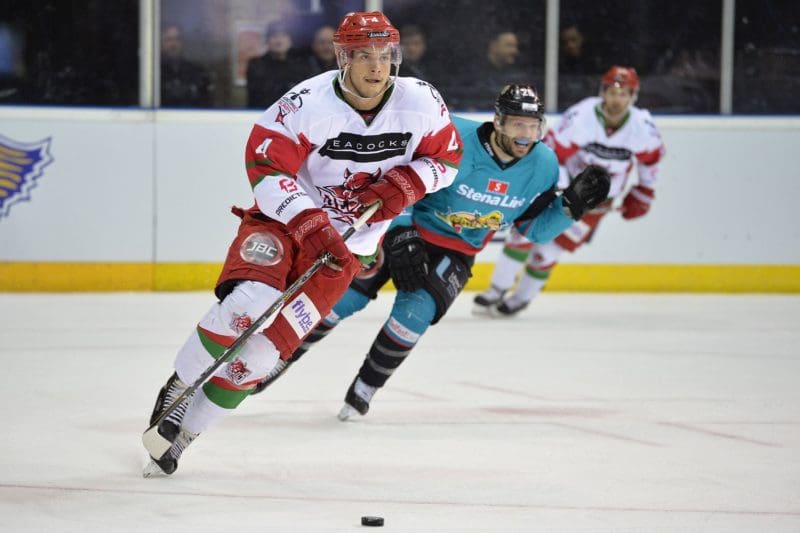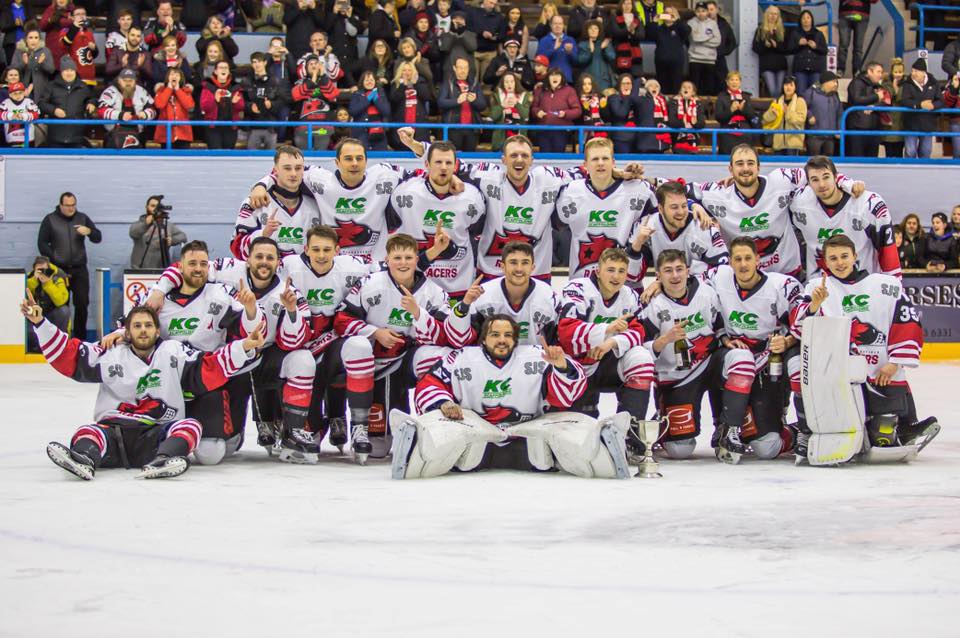Former Nottingham Panther Grant Budd is building a new hockey outpost on the Falkland Islands – despite not having an ice rink to work with.
Despite that handicap, he’s assembled an adult team in Port Stanley that won its debut international competition in 2015, and followed that up by returning to Punta Arenas, Chile, with a kids’ team that won the inaugural junior Copa Invernada last month.
“Our current ethos and the strategy we’re trying to put in place on the islands is the one that I learned from Alex Dampier and Les Strongman at Nottingham,” Budd said.
“I’m trying to implement all the stuff I was taught on the Panthers’ program, only without the ice.”
Budd, who made a dozen or so top flight appearances with the Panthers in the late 80s but admitted that his small stature made it hard to compete at that level, took the Port Stanley Penguins to its first ever tournament on ice last year – and duly won the Copa Invernada in Chile.
That team included Jonathan Nicholson, a national student champion with the University of Northumbria and Ryan Bahl, the man behind the Antarctic Hockey project that will see him become the first person to play an official game on all seven continents.
Its success captured the imagination of the islanders and encouraged more locals to get involved in the game – including one of the Falklands’ top footballers.
“Claudio Ross has played football in competitions like the Island Games but never really thought of playing hockey,” Budd said.
“His son was in the youth team so he just came to see what it was all about – and he quickly wanted to get involved as well. We got him kitted up and he’s loving it. We’ve got a footballer turned hockey player!”
With no ice on the islands, hockey has grown from dek and inline. Trips to Punta Arenas, about a 90-minute flight away on the shores of the Magellan Strait in Chilean Patagonia, are the only opportunity to play on ice, even if the rink in the local shopping mall is only large enough for 3-on-3 action.
Despite that, the Port Stanley Wolverines lifted the cup thanks to a victory over the locals of Escuela Bulnes in the final. The Wolverines were one of four junior teams to travel from the islands, and the youth program takes in about 50 kids in total.
“Apart from my son, Malachi, this was the first time most of these kids had played on ice,” Budd added.
“Even the skates were brand new, and had to be broken in. It was a big adjustment from inline but even from the start of the competition you could see just how much more confident the kids were getting on the ice.”
Budd, who followed up his time at the Panthers by setting up the Peterborough Islanders in 1996, is proud that hockey players from Britain are playing a part in bringing the game to the southern-most tip of Latin America and making the Falklands into the smallest country with a national team.
And the project has also helped to build bridges in the ongoing dispute with Argentina, which claims ‘Las Malvinas’ as its own territory.
Playing in Chile, the Port Stanley Penguins have come up against Argentinian opposition in the form of Nires and Club Andino de Ushuaia.
The games have helped cement friendly relations between the teams and Leandro Zahr, captain of Nires, hopes to play more hockey against Falklands teams.
“Events like this take us away from ‘old politics’ and get people thinking about a new way of doing things,” he said.
“We’re here for the hockey and nothing else. Our team would be delighted to have the chance to go and play on the Falklands, and we’d love to invite their team to come to us in Southern Argentina because all that helps our sport to grow.”
The next step is to bring ice to the Falklands – and that connection with Bahl and Antarctic Hockey could be the answer.
“It’s uneconomical for the Antarctic project to take a rink down there and ship it back to Canada afterwards,” Budd explained.
“Ryan is hoping that he’ll be able to offer us the rink at cost – it’s a great price, $25,000 isn’t a lot of money for the Falklands government.
“We need a building to put it into and that’s not so expensive either. Then it’s just the running costs.
“We don’t need anything special, just a small ice pad like the one in Punta Arenas is ample for kids to learn the game.”

